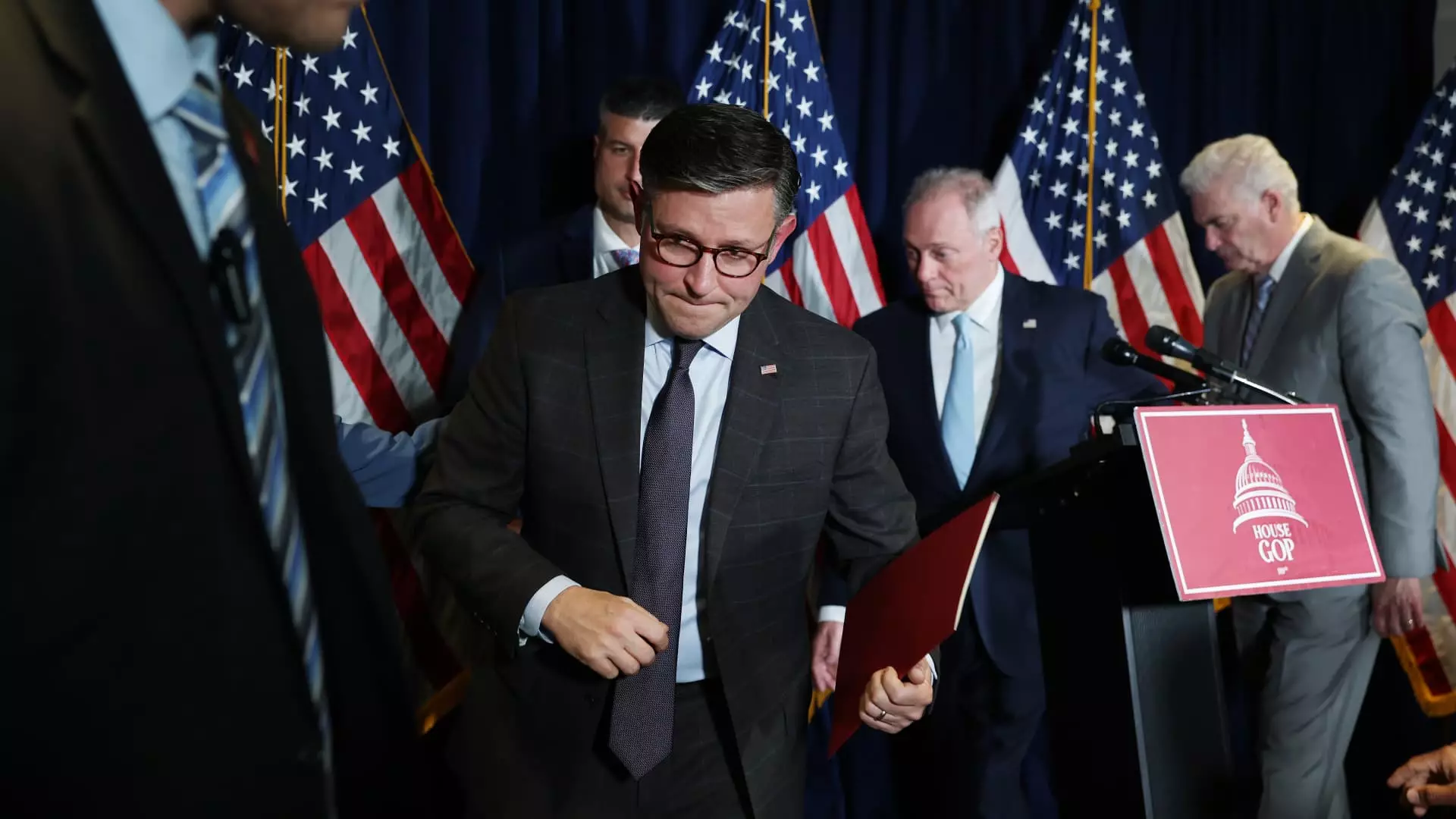In the never-ending dance of American politics, the current debate surrounding government funding reveals a deeper malaise—an inability for parties to find common ground without wielding power as a weapon. House Speaker Mike Johnson’s recent accusations against Democrats for injecting partisan priorities into funding negotiations are not just political posturing; they reflect an underlying hostility that hampers responsible governance. Johnson’s rhetoric dismisses his counterparts as self-interested actors risking a shutdown over ideological wins, but this oversimplification misses the core issue: a failure of the political system to prioritize national stability over partisan battles.
This crisis underscores a disturbing trend where strategic negotiations are replaced by partisan brinkmanship. Democrats are pushing for extensions to health insurance subsidies, a critical safety net for millions. Meanwhile, Republicans are insistent on delaying these discussions until they coincide with the expiration timeline—an approach that seems designed to maximize leverage, even at the expense of millions vulnerable to rising premiums. Both sides are seemingly comfortable risking a shutdown, demonstrating how entrenched political divisions have rendered pragmatic compromise nearly impossible.
Partisan Priorities Over Public Welfare
The debate over ACA subsidies is more than a budget sticking point; it symbolizes a broader unwillingness to invest in the health security of everyday Americans. While Johnson dismissively labels these negotiations as irrelevant in September, the reality is stark: if these subsidies disappear, insurance premiums could skyrocket by up to 75%, disproportionately affecting rural and low-income populations. This is a tangible threat to millions who rely on affordable coverage, yet for many in Congress, it appears to be a secondary concern compared to advancing political narratives.
Both parties are culpable in this game of brinkmanship. The Republicans’ strategy of delaying negotiations until the last moment indicates a preference for political theater rather than responsible stewardship. Democrats demanding the subsidies as part of their bargaining chips exposes their willingness to fight for economic safety nets, even if it complicates budget politics. Unfortunately, this clash of priorities risks leaving millions exposed to rising healthcare costs, which in turn could deepen societal inequalities.
The Economic and Social Toll of Political Dysfunction
The potential fallout from a government shutdown extends beyond political disagreement. Experts warn that a prolonged shutdown could significantly impair economic momentum, especially considering recent indicators of a weakening labor market. The idea that political stalemates could exacerbate economic decline—particularly in a recovery that has yet to regain pre-pandemic strength—is a sobering realization. The notion that partisan games could prolong economic pain feels both short-sighted and reckless.
Moreover, a shutdown would erode public confidence, tarnish America’s global image, and potentially slow growth when the nation needs stability most. As bank analysts suggest, the risk of a negative shock outweighs past shutdown impacts, which were relatively contained. If debt and deficit negotiations become hostage to partisan demands, the collective damage could be devastating, hitting the most vulnerable hardest and prolonging economic recovery for years to come.
A Call for Responsible Leadership in a Divided Nation
It’s tempting to see these political skirmishes as just another chapter in Washington’s dysfunction, but they highlight an urgent need for responsible, centrist leadership that prioritizes the common good. Both parties are playing a dangerous game of brinksmanship that risks alienating the very voters they aim to serve. A government shutdown isn’t just a political badge of honor; it’s a direct assault on stability and trust.
In the face of this chaos, citizens must advocate for leaders who recognize that governance is about balancing competing interests and safeguarding the nation’s future, not just scoring short-term political points. America’s democracy is at a crossroads where the meaningfulness of bipartisan cooperation will determine whether it endures or collapses into further institutional paralysis. If the current trajectory continues, the consequences for societal cohesion, economic stability, and global credibility will be dire. The time for responsible action, regardless of partisan turmoil, is long overdue.


Leave a Reply